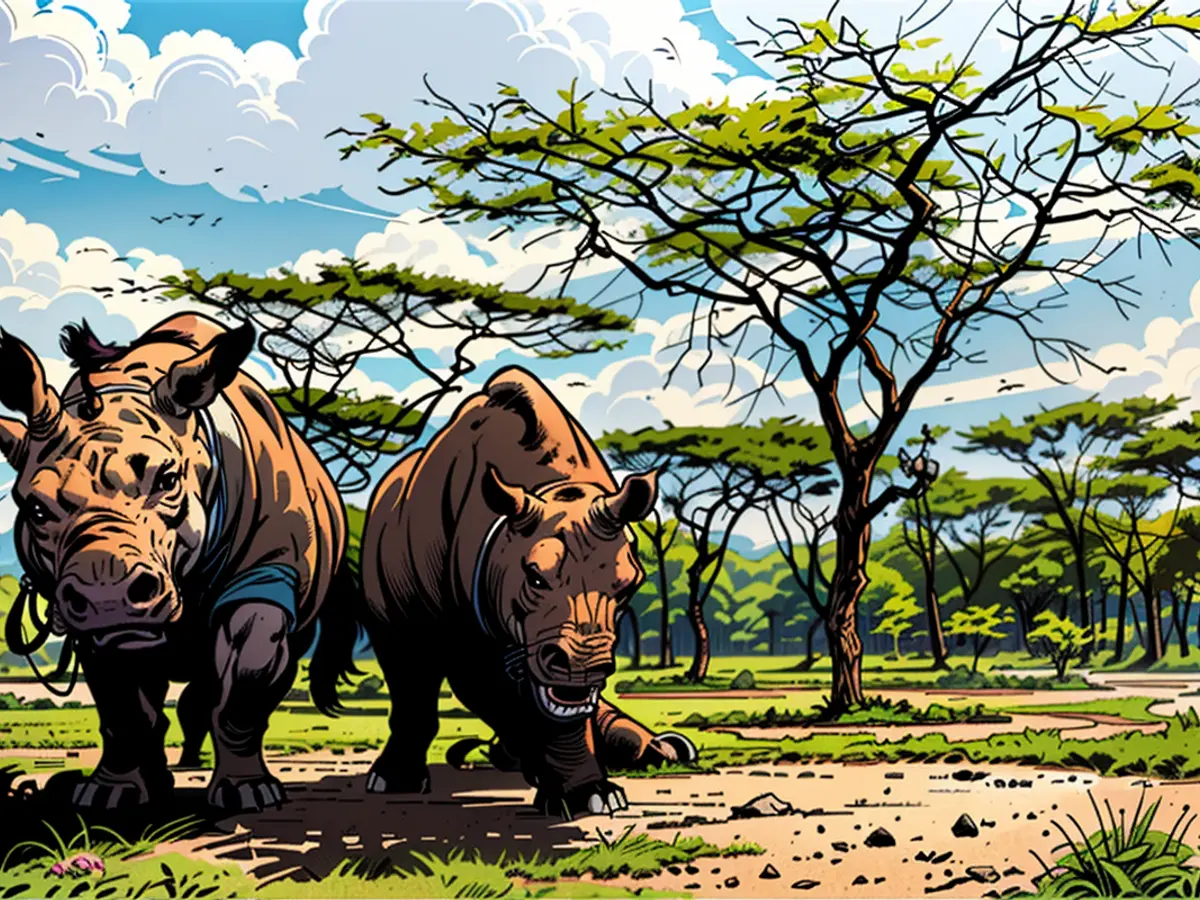A research facility will soon be erected in Berlin for the conservation of the endangered northern white rhino species.
Two female northern white rhinoceroses, Najin and Fatu, were relocated from a Czech zoo to a Kenyan nature reserve in 2009. Despite hopes, they didn't reproduce. The last male of the species passed away in 2018. Now, the international project Biorescue, overseen by the Berlin Leibniz Institute, is aiming to acquire northern white rhinoceroses through artificial insemination.
Scientists have been creating northern white rhinoceros embryos since 2019, and these have been preserved in biobanks at -196 degrees Celsius. At the Berlin Zoo's future research station, they wish to experiment with transferring northern white rhinoceros embryos into surrogate mothers of the closely related southern species. This endeavor could also mark the beginning of other rescue attempts for endangered species.
The population of northern white rhinoceroses has been severely depleted due to poaching since the 70s. It's estimated that there were over a million in the wild at the start of the 19th century. The reproduction program offers the final opportunity for these beasts. Neither Najin nor her daughter Fatu are physically capable of carrying a calf.
Officials anticipate building work for the Berlin study facility to begin in the autumn, with estimates for its completion in spring 2026. The 3-hectare facility can house up to six adult southern white rhinoceroses, granting researchers constant, "protected contact" with the creatures—such as performing ultrasound scans without anesthesia.
Read also:
- The Berlin Zoological Garden will be home to the new research station, which aims to save the critically endangered northern white rhinoceros using embryos from Kenya and surrogate mothers from the related southern white rhinoceros species.
- The planned research facility in Berlin will contribute to a broader initiative, potentially paving the way for similar rescue attempts for other endangered animal species.
- Although Najin and Fatu, the last remaining northern white rhinoceroses, were relocated to Kenya in 2009, their inability to reproduce highlights the significance of the artificial insemination project and the Berlin zoo's research station.







